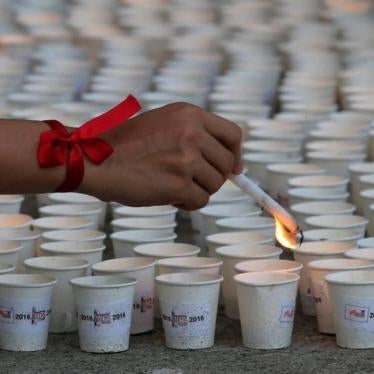Human Rights Watch called on the World Trade Organization's General Council to reverse the decision announced that the WTO will hold its next ministerial meeting in the Persian Gulf state of Qatar. The selection of
Qatar, reportedly made in an informal meeting earlier today, is slated to be confirmed when the General Council meets in Geneva on January 30.
"The WTO has selected a country for its next summit where freedom of assembly is nonexistent," said Kenneth Roth, executive director of Human Rights Watch. "This looks like an effort to avoid the noisy demonstrations of the past year by picking a country that bans demonstrations. The WTO should be striving to build the global economy on a foundation of respect for such basic human rights--not hiding behind governments that systematically violate those rights."
Human Rights Watch wrote to WTO Director-General Mike Moore on January 19, urging that the fourth WTO ministerial meeting scheduled for later this year be convened in a country where freedom of assembly and association are guaranteed in law and practice, and where internationally recognized standards of due process are firmly in place.
In remarks to the press today, Mr. Moore said that non-governmental organizations previously accredited by the WTO would have access to Qatar, although he made no pledge about the right to peaceful assembly. Mr. Moore said, "We have a set of conditions for non-governmental organizations and the media. These haven't changed. This will be very successful and I can assure journalists and others they will be splendidly looked after."
"These assurances are irrelevant for representatives of NGOs not formally accredited by the WTO, but who want to make their voices heard during the meeting," said Roth. "Whether the WTO agrees with these groups or not, it should make sure that their right to be heard is respected."
Qatar is not a party to the International Covenant on Civil and Political Rights, the international treaty that guarantees basic freedoms of expression, assembly and association along with due process protections. Qatar also is not a signatory to the Vienna Convention on Consular Relations -- nor to any other bilateral or multilateral consular accord -- which raises serious issues in cases of detention of foreign nationals, Human Rights Watch said.








